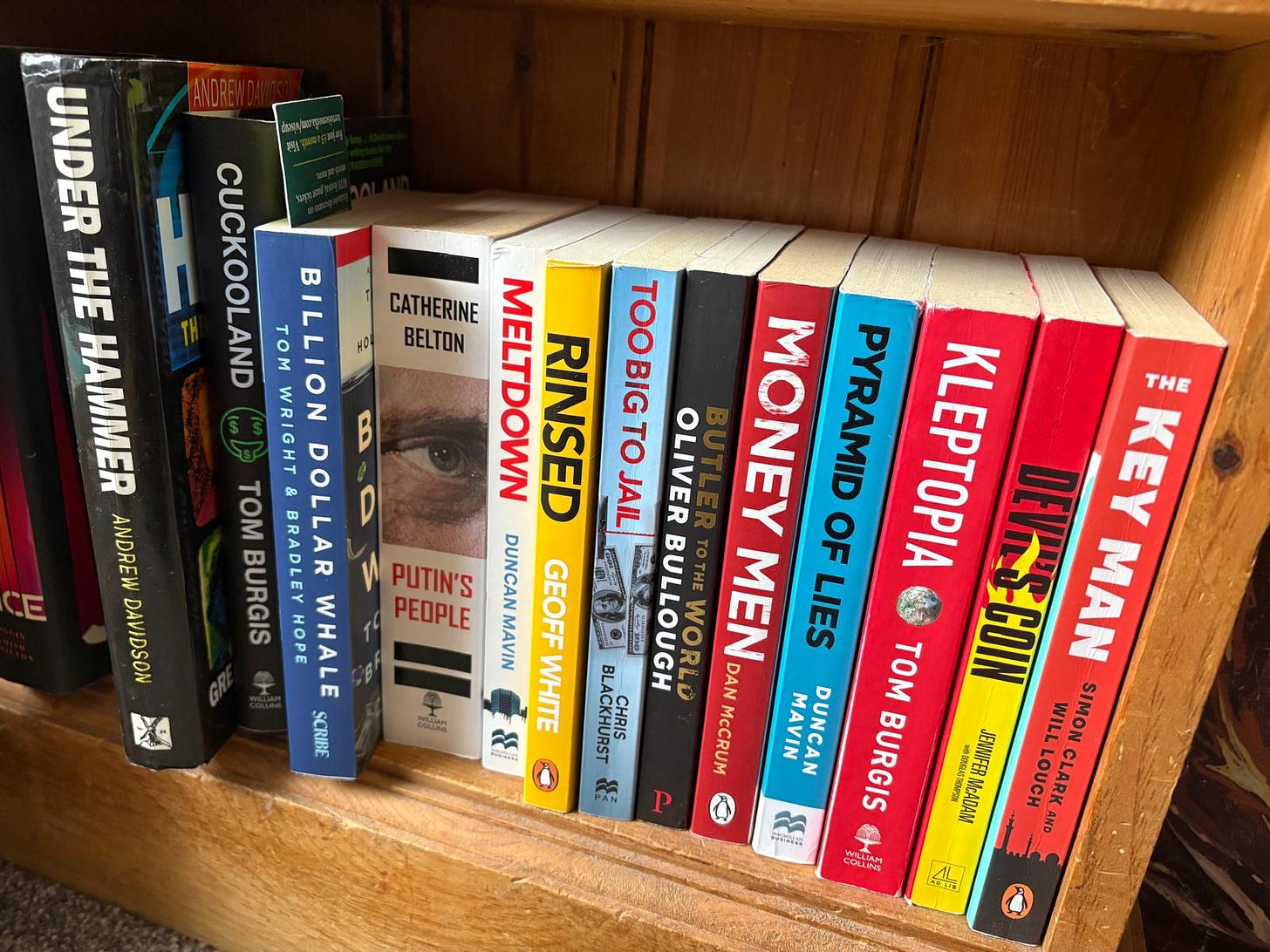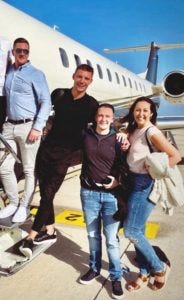Why great stories of greed are so exciting
How the world really works, and how bad guys get away with it
Hello Rainmakers,
Something a bit different this week.
A common thread through true crime stories are the attempts to use the language and presentation of conventional business.
Rainmakers subscribers get two unique pieces a week, but also full access to our back catalogue of investigations, scoops, and insights, including updates from The Secret Investor, interviews with entrepreneurs, and the leaders from VC and PE investors like Endless, and River Capital, Foresight, Mercia, Puma and LDC.
There’s currently a steady stream of books hitting my reading list that are often loosely called ‘narrative non-fiction’ - well-told stories about often complex subjects, that give us a clearer view of how the world really works.
Even for me, a journalist who enjoys interviewing and probing business people, I find most business books boring and samey. The progression from not quite that humble a background via periods of good luck, struggle and breakthrough, that all tend to end up in the same smug place, with a valedictory lecture tinged with - if I can do it, so can you.
Far better are the dramatic tales of rotters and rogues, the struggles of law enforcement and other outliers - like journalists and NGOs - to expose corruption and scams.
In some parts it is depressing at how appalling people can be - there are two by the same author, Patrick Alley called, Very Bad People and Terrible Humans, which give a pretty accurate foretaste of what is to come.
The reality however is that journalists and publishers have to tread on fairly solid legal ground, so the stories I’ve enjoyed reading the most do tend to end with the redemption of a legal conviction, or at least an exposure. An endgame of sorts.
Having devoured Geoff White’s book Rinsed, which includes on its world tour a dramatic bust of a money laundering and drug operation in Greater Manchester, my current journey is rattling through Billion Dollar Whale, by Tom Wright and Bradley Hope. It’s an epic story about a Malaysian social climber Jho Low, who part funded the film The Wolf of Wall Street, with money taken from the Malaysian sovereign wealth fund.
It is ironic, that it starts to come crashing down for Low when his involvement in the movie becomes known, as well as his friendship with lead actor Leonardo Di Caprio, who portrays the convicted fraudster Jordan Belfort.
But the detailed tales of kickbacks, backhanders, cover-ups, greed and outright corruption are absolutely staggering.
While I applauded from the sidelines that Wall Street Journal reporters Wright and Hope landed such a big catch, it was a reminder too that there have been incredible tales closer to home too.
So why do I mention this?
Nothing smacks of hubris and business confidence like a private jet trip.
When TheBusinessDesk.com blew the doors open on the inner workings of investment group Inc&Co, the chance to show the principals aboard a private jet, paid for with money that Barclays bank claim was part of the £13.7m in unauthorised borrowings, was too good a chance to miss.
That story, though on a smaller scale than the plundering of sovereign wealth funds, did show how complicated and labyrinthine the simple act of robbing a bank has got, but how weaknesses and vulnerabilities in the systems set up to keep our money safe is what gets targeted.





